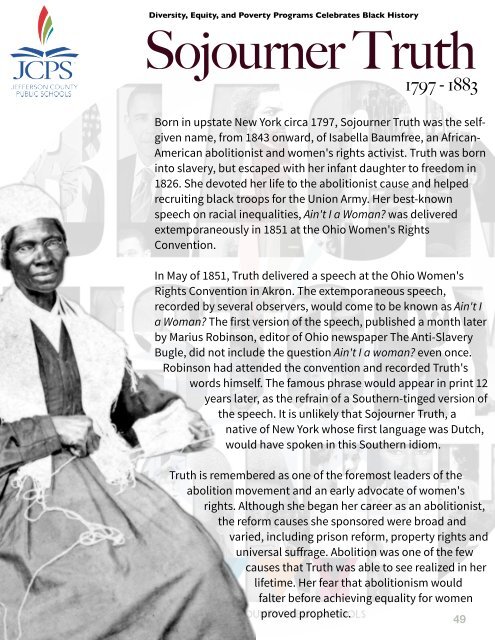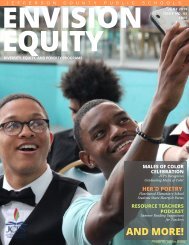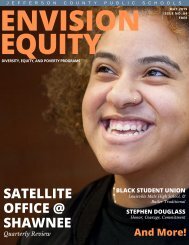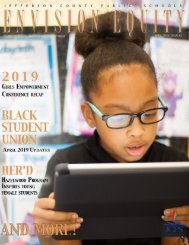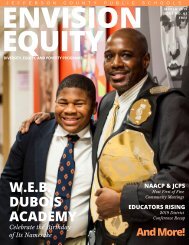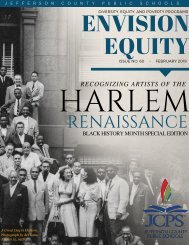2018 Black History Month Edition
Readers, Please enjoy the Black History Edition of our Envision Equity newsletter. This edition celebrates and recognizes black woman that have shaped and molded our world into a better place. As a reader, you will have access to photos from events that embody the purpose of this newsletter. We hope you enjoy, share, and contribute to the newsletter. Lastly, remember to Envision Equity.
Readers,
Please enjoy the Black History Edition of our Envision Equity newsletter. This edition celebrates and recognizes black woman that have shaped and molded our world into a better place.
As a reader, you will have access to photos from events that embody the purpose of this newsletter.
We hope you enjoy, share, and contribute to the newsletter. Lastly, remember to Envision Equity.
Create successful ePaper yourself
Turn your PDF publications into a flip-book with our unique Google optimized e-Paper software.
Diversity, Equity, and Poverty Programs Celebrates <strong>Black</strong> <strong>History</strong><br />
Sojourner Truth<br />
1797 - 1883<br />
Born in upstate New York circa 1797, Sojourner Truth was the selfgiven<br />
name, from 1843 onward, of Isabella Baumfree, an African-<br />
American abolitionist and women's rights activist. Truth was born<br />
into slavery, but escaped with her infant daughter to freedom in<br />
1826. She devoted her life to the abolitionist cause and helped<br />
recruiting black troops for the Union Army. Her best-known<br />
speech on racial inequalities, Ain't I a Woman? was delivered<br />
extemporaneously in 1851 at the Ohio Women's Rights<br />
Convention.<br />
In May of 1851, Truth delivered a speech at the Ohio Women's<br />
Rights Convention in Akron. The extemporaneous speech,<br />
recorded by several observers, would come to be known as Ain't I<br />
a Woman? The first version of the speech, published a month later<br />
by Marius Robinson, editor of Ohio newspaper The Anti-Slavery<br />
Bugle, did not include the question Ain't I a woman? even once.<br />
Robinson had attended the convention and recorded Truth's<br />
words himself. The famous phrase would appear in print 12<br />
years later, as the refrain of a Southern-tinged version of<br />
the speech. It is unlikely that Sojourner Truth, a<br />
native of New York whose first language was Dutch,<br />
would have spoken in this Southern idiom.<br />
Truth is remembered as one of the foremost leaders of the<br />
abolition movement and an early advocate of women's<br />
rights. Although she began her career as an abolitionist,<br />
the reform causes she sponsored were broad and<br />
varied, including prison reform, property rights and<br />
universal suffrage. Abolition was one of the few<br />
causes that Truth was able to see realized in her<br />
lifetime. Her fear that abolitionism would<br />
falter before achieving equality for women<br />
proved prophetic.<br />
49


